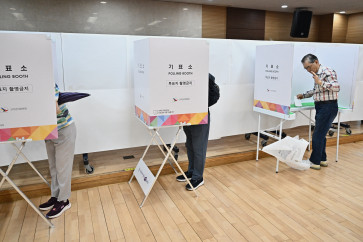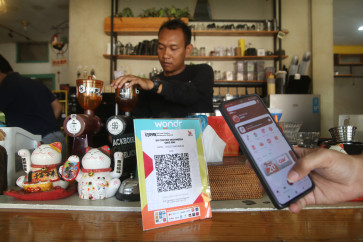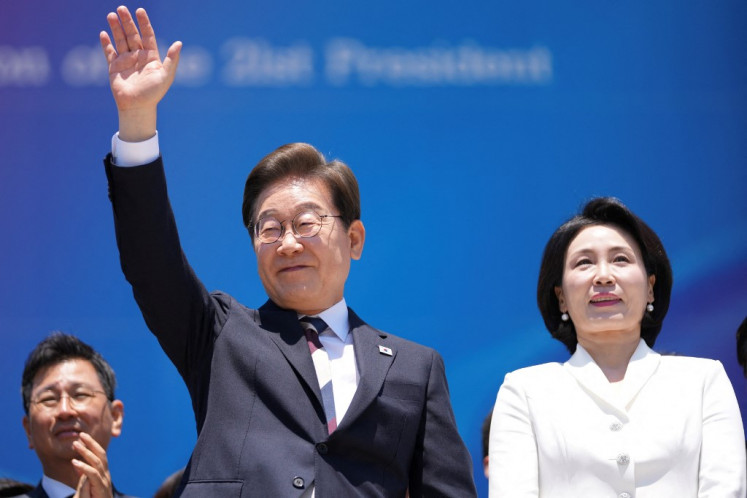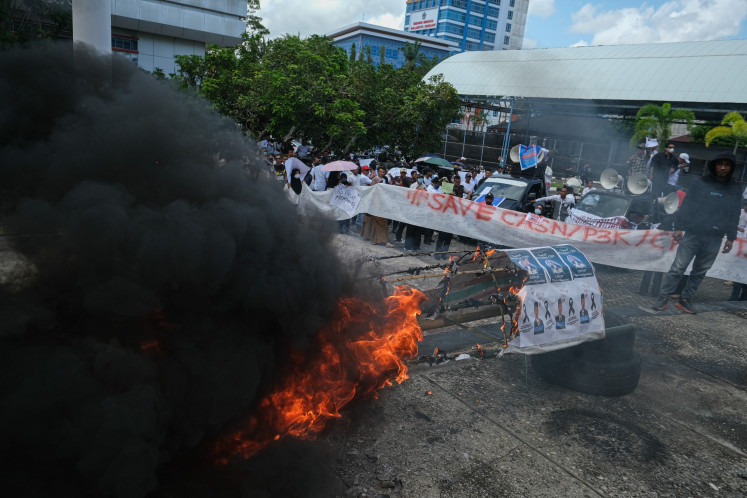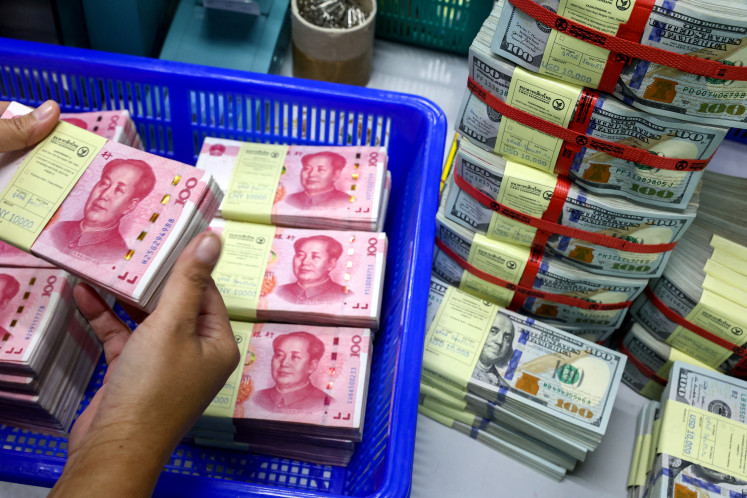‘Everything on track’ for Indonesia’s ASEAN chairmanship: Minister
RI’s chairmanship lacks transparency, say analysts.
Change text size
Gift Premium Articles
to Anyone
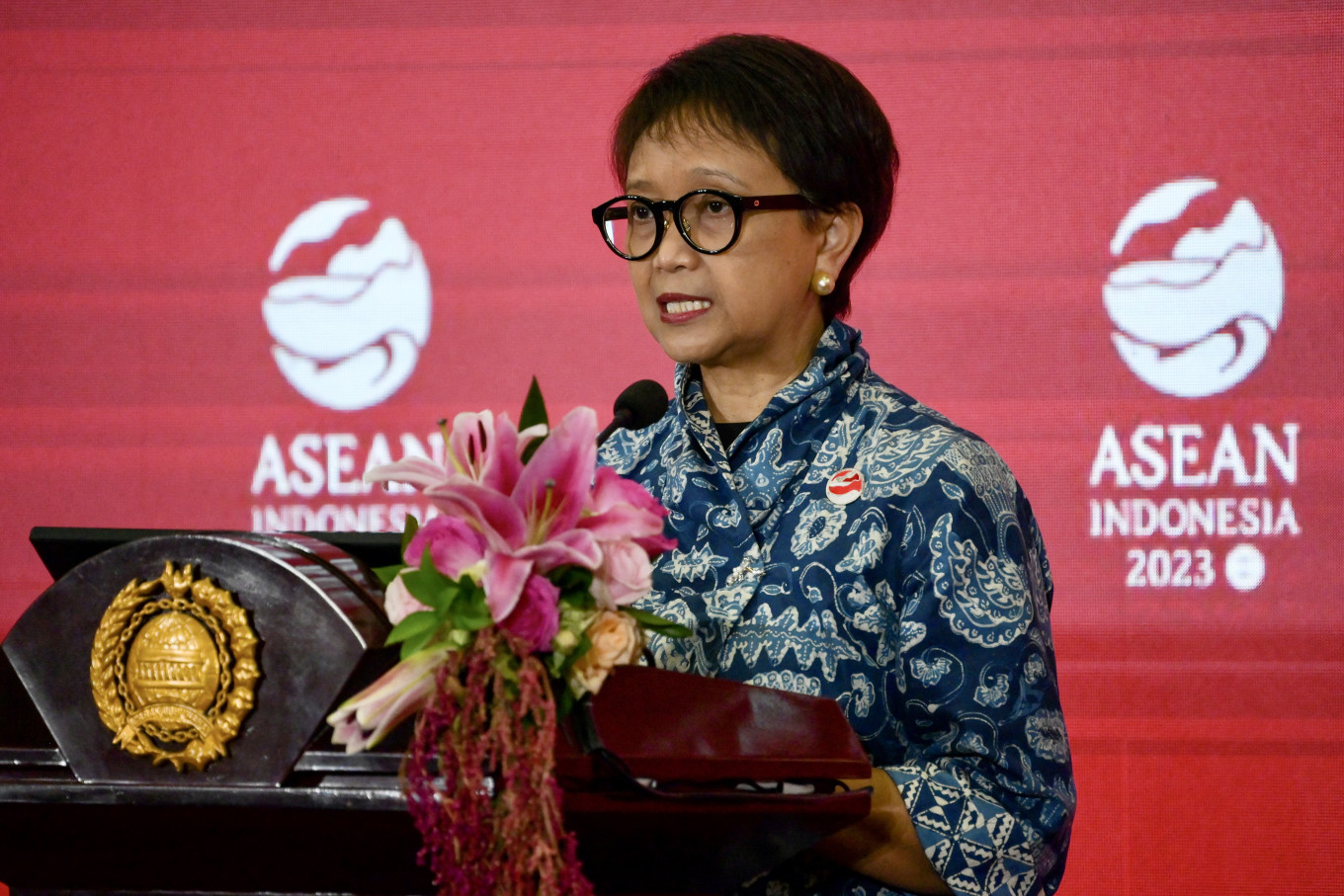
A
fter over three months and hundreds of closed-door meetings since the start of Indonesia’s chairmanship of ASEAN, “everything is on the right track”, said Foreign Minister Retno LP Marsudi, as if to compensate for the apparent radio silence that has obscured progress on issues of regional concern.
The minister’s statement, made amid fast-changing realities witnessed by Southeast Asian nations in past months, reaffirmed that Jakarta’s focus remains centered on the three pillars of its agenda: emphasizing ASEAN centrality, ensuring economic growth and implementing its Outlook on the Indo-Pacific (AOIP).
Speaking to reporters on Wednesday, Retno explained that it was Indonesia’s priority that ASEAN’s capacity be “strengthened” under its leadership, such that it could effectively handle any present and upcoming challenges.
“There is an ongoing process at the moment to discuss an ASEAN leaders’ statement on the strengthening of ASEAN’s capacity and institutional effectiveness, which is to be adopted by the upcoming summit,” she announced.
The past few years have seen ASEAN struggle to earn the trust of its people, as intense geopolitical rivalries continue to shake up the region with little assurance that the association can efficiently rise to the occasion if any urgent security threats make themselves present.
A slow-moving process, red tape and an outdated charter remain ASEAN’s biggest weaknesses, critics say.
In the spirit of reaffirming centrality, ASEAN will continue to prioritize select issues, the minister said, including the advancement of the negotiations for the Code of Conduct (CoC) in the South China Sea, the strengthening of a regional human rights dialogue and the resumption of accessions to the Southeast Asia Nuclear Weapon Free Zone (SEANWFZ) protocol with nuclear-wielding nations.
Amid grim global economic projections, Retno also said that the bloc had attempted to stabilize the region’s finances, as well as create an electric vehicle (EV) ecosystem as part of a wider push for energy security.
“At the High-Level Task Force on Economic Integration, ASEAN countries have agreed to develop an EV ecosystem within ASEAN that will be signed at the May summit,” she said during the press statement.
“There was also an agreement that ASEAN countries remain committed to using their local currencies and increase regional payment connectivity so that the region’s economic stability can be ensured.”
Indonesia’s flagship event, the ASEAN Indo-Pacific Forum (AIPP), would commence in early September as part of the implementation of the AOIP, she added.
Zipped lips
Despite the ministry’s optimism about its leadership so far, international relations experts suggest that Indonesia should be more transparent about the progress of its work so far, lest the public become distrustful of its supposed success at leading the 10-nation bloc.
While Indonesia has been mostly candid about the hundreds of meetings that have been scheduled for this year, important details about sensitive and important issues remain largely elusive.
For example, its progress in addressing the Myanmar issue remains ambiguous, analysts said, despite repeated affirmations it was “engaging with all stakeholders”.
Additionally, key details about last month’s CoC talks with China continue to elude the public’s knowledge.
“It is very difficult to gauge whether Indonesia is doing well or not. Maybe it’s true, maybe they have achieved a lot of progress, but the public does not know enough to say that,” said Gadjah Mada University (UGM) international relations expert Dafri Agussalim on Wednesday.
“The lack of communication is jarring, despite the fact that our leadership should both involve and benefit the people.”
From the start of the year, the ministry had made it clear that quiet diplomacy would be its preferred strategy in dealing with the region’s most pressing issues, as any public communication or reaction gone awry could jeopardize whatever progress was made, officials said.
“Building trust is highly important, and Indonesia will continue to bridge the existing differences,” Retno said on the issue of Myanmar. “We have conducted intensive engagement during our leadership.”
The 42nd ASEAN Summit will take place early next month in Labuan Bajo, East Nusa Tenggara, and will run for nearly a week as the leaders of Southeast Asia mull over key regional issues. A non-political representative from Myanmar has been invited to attend, the ministry has said.
Previous ASEAN chairmanships held by Brunei and Cambodia have had limited impact on the current political crisis in Myanmar, which has been under military rule after a military junta took over power from the democratically elected government in February 2021.

